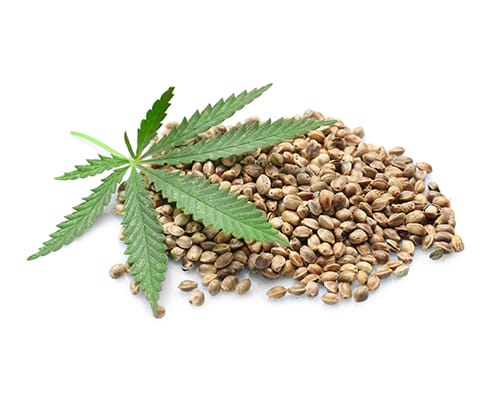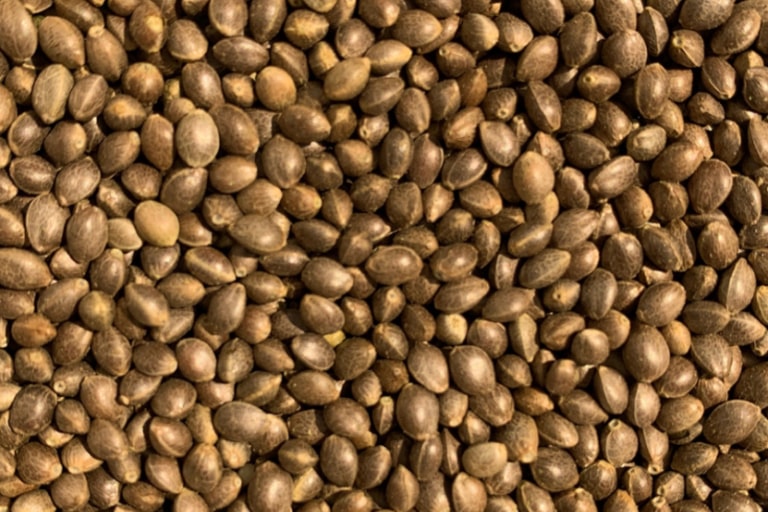Your Guide to Choosing the Right Hemp Seeds
With the legalization of the hemp industry in the State of Colorado and elsewhere, it is an exciting time to be an entrepreneur. The industry itself presents tremendous opportunities for growth (pun intended) and continued innovation.
But if you are hoping to succeed in this already competitive industry, you are going to want to make sure you are working with the proper seeds. Ignoring the importance of the seed selection process will result in weaker yields, lower quality products, and the failure to capitalize on the opportunities that the industry presents.

Succeeding in the hemp industry will require a lot of work. But by keeping these simple tips in mind, you can find the best seeds and be well on your way to success.
Think about the kind of hemp you are trying to grow
Hemp is one of the most dynamic plants on the face of the Earth. Hemp can be used for industrial purposes, medical purposes, and numerous others. Naturally, the ultimate purpose of the hemp you are growing will affect the kinds of seeds you ought to be shopping for.
If you are trying to grow hemp for industrial (fiber, grain production, etc.) purposes, the CBD content of the plant won’t be particularly relevant. But if you are growing hemp for medical or personal wellness purposes, finding strains with CBD content is going to be incredibly important.
CBD (Cannabidiol) is distinctively different than psychoactive cannabinoid THC (tetrahydrocannabinol) that is found in the marijuana plant. CBD interacts with the body through cannabinoid receptors is in a way that is distinctively non-psychoactive. CBD can potentially be used to treat a variety of different conditions ranging from chronic pain to epilepsy.
Decide if you want to use seeds or feminized clones
If you are hoping to grow hemp that is CBD-intensive, you are going to have two different types of input options to choose from. You can either use seeds or feminized clones.
Many hemp farmers are initially tempted to choose to plant seeds because, at least in the very beginning, these seeds are usually the more affordable option. However, the use of seeds in industrial hemp growth can be much riskier. Seed growth is less consistent and more likely to result in a failed crop. Instead of using seeds, you may want to consider using clones.
The sex of your seeds is very important. Roughly half of all “unfeminized” seeds are male (typically anticipate between 40-60% of any given lot). Because pollination only requires a small portion of the total crop to be male, having too many male plants is simply ineffective. Ideally, your crop would be almost entirely female (with just a few males for pollination) in order to maximize its total yield.
Choosing seeds is a complicated process
Even once you have decided whether you are planning on using seeds or clones and feminized or unfeminized plants, there are still a number of important decisions you are going to need to make. Before you begin any large scale activities as a hemp grower, you are going to want to do ample amounts of research and understand the entire farming process to the greatest extent you possibly can.
- What is the purpose of the hemp you are growing? The hemp industry is something that has a wide variety of different potential uses. Hemp can be used for agricultural, industrial, and personal wellness purposes (among others). The use your hemp is being grown for will determine which strain is best.
- What is the ideal CBD: THC ratio? Depending on your target market (personal users, personal wellness clinics, etc.), you may want to grow a strain that is composed of both CBD and THC—you also may want to grow a strain that has no THC whatsoever.
- What type of farm do you plan on using? The specific seed that is right for you will largely depend on the conditions of the environment it will grow in. Is your farm indoors or outdoors? Is the environment moist or dry? Hot or cold? Each of these variables will directly affect the quality of your overall crop.
These are just a few of the different things you will want to be thinking about throughout the entirety of the seed selection process. Success in the hemp industry isn’t guarantee to everyone who chooses to enter it—knowing the kinds of seeds that will produce the most profitable yields will require a substantial amount of research and, preferably, experience.
When comparing different seeds, it also helps to look at previous statistics. One of the most useful statistics you can find regarding hemp crops is the cost to yield ratio. This ratio will demonstrate how a particular strain has performed in the past and will ultimately be quite useful in helping you predict how your crop might perform in the future. For example, if a cost to yield ratio is 1: 5, that means that for every dollar you spend on the production process, you will receive $5 in return.
You have a lot to consider!
Though statistics obviously paint a rather incomplete picture, it is certainly helpful to know where you stand. If you are an outdoor farmer, you are inevitably going to want to also take a look at an almanac (or some sort of agriculture forecast). Certain years are better for planting hemp than others—ideally, you will want to work in a climate that doesn’t get to be too cold and also has at least some degree of moisture.
You will also need to think about how your plants will actually grow. Some strains are more susceptible to the use of fertilizer than others. Additionally, some seeds have been bred to have natural pesticides within them while others may need require some sort of external pest control in order to achieve optimal results. If climate, fertilizer, and pesticides pose any limits to your operation, they will need to be considered when making your final seed selection.
Clearly, there are a lot of different things you will need to be thinking about when choosing the hemp seed that is best for you. You will need to decide whether you want the crop to be feminized or unfeminized. You will need to decide whether you want seeds or clones. You will also need to think about your specific goals, intended purpose, available resource, and experience as a farmer.
These details are not designed to deter you from entering the hemp industry—in fact, the industry seems to be too potentially lucrative for you to willingly overlook it. Instead, these simple pieces of advice are designed to help you become the best hemp farmer you could possibly be.




